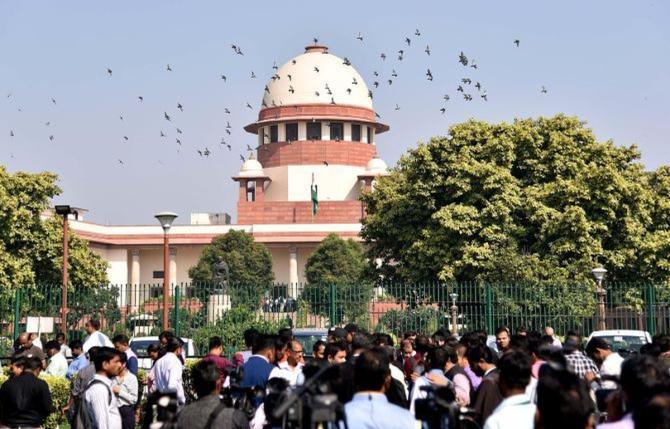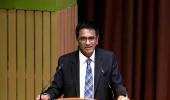The "bail is the rule and jail is an exception" legal principle is applicable even to offences under special statutes like the Unlawful Activities (Prevention) Act, the Supreme Court ruled on Tuesday while granting bail to a man accused of harbouring suspected terrorists.

A bench of Justices Abhay S Oka and Augustine George Masih said once a case has been made out for the grant of bail to an accused, the court cannot decline the relief.
"When a case is made out for a grant of bail, the Courts should not have any hesitation in granting bail. The allegations of the prosecution may be very serious. But, the duty of the Courts is to consider the case for grant of bail in accordance with the law. 'Bail is the rule and jail is an exception' is a settled law," the bench said.
The top court said even in cases like the present one where stringent conditions have been laid down for the grant of bail, the same rule holds good with the only modification being that bail can be granted if the conditions in the statute are satisfied.
"The rule also means that once a case is made out for the grant of bail, the court cannot decline to grant bail. If the Courts start denying bail in deserving cases, it will be a violation of the rights guaranteed under Article 21 (right to life and personal liberty) of our Constitution," the bench said.
The verdict came while ordering the release of a retired police constable Jalaluddin Khan, who was booked under the stringent provisions of the anti-terror law and those of the now defunct Indian Penal Code for renting out the upper floor of his house to alleged members of the banned Popular Front of India (PFI).
According to the National Investigation Agency (NIA), the probe revealed that a criminal conspiracy was hatched with an intention to carry out acts of terror and violence, leading to an atmosphere of terror and endangering the unity and integrity of the nation.
In furtherance of the alleged conspiracy, the accused arranged rented accommodation in Ahmad Palace in Phulwarisharif (Patna) and used its premises for imparting training in acts of violence.
The NIA claimed that the Bihar Police had received information about their plan to cause disturbance during Prime Minister Narendra Modi's visit in 2022.
On a tip off, a raid was conducted by the Phulwarisharif Police on July 11, 2022 at the house of Khan.
The apex court said there is nothing in the charge sheet to show that Khan took part in or committed unlawful activities as defined in the UAPA.
The SC said even assuming that the co-accused were indulging in terrorist acts or were planning to commit such acts, there was absolutely no material on record to show that Khan was a party to the conspiracy.
"There is no material produced on record to show that the appellant advocated, abetted, advised, or incited the commission of terrorist acts or any preparatory activity," it said.
The apex court noted it was Khan's son who negotiated with the other accused for renting out the first floor of their house.
"Taking the charge sheet as correct, it is not possible to record a prima facie finding that the appellant knowingly facilitated the commission or preparation of terrorist acts by letting out the first floor premises. Again, there is no allegation in the charge sheet against the appellant that he organised any camps to impart training in terrorism.
"There is not even an allegation in the charge sheet that the appellant was a member of any terrorist gang," it said, and ordered Khan's release on bail.










